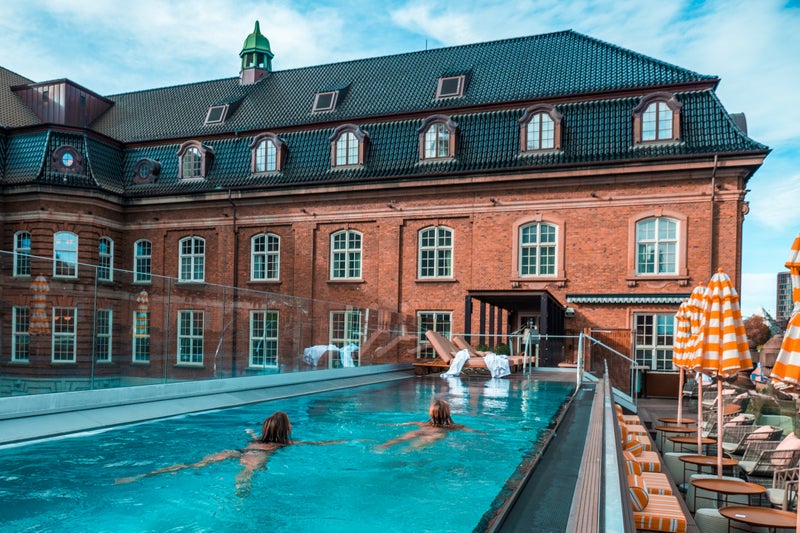As Putin’s actions again disrupt the start of a Munich security conference, Brussels largely has itself to blame. The start of the Munich security conference has a habit of being disrupted by a display of power by Vladimir Putin. In 2022, the transatlantic security establishment gathered in the knowledge that Putin was days from launching his attack on Kyiv. In 2023, the opposition leader Alexei Navalny died in disputed circumstances in a Russian jail and this year Russia’s leader is on the brink of opening talks with Donald Trump that many analysts predict will end with Russia not just gaining Ukrainian territory but dismembering Ukraine as a sovereign independent state.
![[Zelenskyy says Ukraine won't accept any peace deal made by Trump and Putin alone – video]](https://i.guim.co.uk/img/media/9d98ff88da441110e6971076a8ab80eaa64e0bd0/0_0_2449_1377/2449.jpg?width=465&dpr=1&s=none&crop=none)
For Europe it is a humiliation. And yet little that Trump or his defence secretary, Pete Hegseth, said on Wednesday about their approach to a ceasefire including the US’s refusal to commit further resources to Ukraine could have come as a shock. Indeed Europe largely has only itself to blame. Since the Nato meeting in Newport, Wales, in 2012 that set the target of defence spending reaching 2% of GDP, Europe collectively has had numerous wake-up calls, commissioned strategic reviews, studies of collective defence capability, and generalised warnings from across the Atlantic. Hardly a year went by without the French president, Emmanuel Macron, or the Nato secretary general reaching ever deeper into the lexicon of doom about the brain-dead status of Nato.
Following the shock of Trump’s first term, and the dawning realisation that he might return, the EU bureaucracy spoke of the need to Trump-proof Europe – yet with the steam train coming down the track the EU bureaucracy settled for one more strategic discussion and never reacted with the speed and decisiveness required. There was a collective failure of imagination. As Europe now faces the challenge of being able to put a peacekeeping force into the field, the former MI6 chief Alex Younger admits Europe simply does not have the capabilities to operate without the US. Volodymyr Zelenskyy said as much in his Guardian interview when he said European security guarantees without the help of the US were worthless.
There are many rational explanations for this shortfall, notably the belated recognition about the scale of the Russian threat. From 1999 to 2021 the European allies of Nato increased their deterrence investment by 23.9%. In the same period the US increased its figure by 65.7%, Russia by 192% and China by 592%. Two months after Russia’s full-scale invasion of Ukraine, the EU responded with the portentous Versailles declaration stating: “Russia’s war of aggression constitutes a tectonic shift in European history. At our meeting in Versailles, we discussed how the EU can live up to its responsibilities in this new reality, protecting our citizens, values, democracies, and our European model.”.
The European Defence Agency was given until May 2022 to spell out the gaps in defence capabilities, and the leaders said they looked forward to the publication of the European Strategic Compass “to provide guidance for action across these security and defence dimensions to make the European Union a stronger and more capable security provider”. If European Commission photocopiers could win wars, Moscow would long ago have surrendered.
In a valedictory speech as the EU foreign affairs chief, Josep Borrell said he had tried to make the EU effectively speak the “language of power” and close the gap between “Sunday’s speeches and Monday’s actions”. To be fair he developed the European Peace Facility and the Strategic Compass published in March 2022 listed 80 specific actions nation states needed to take. But as Nick Witney from the European Council on Foreign Relations thinktank wrote at the time, “everyone agrees that [defence] integration is essential, but everyone wants someone else to go first”. He claimed the document was full of process-heavy gradualism, revealing the EU’s inability to intrude on national defence strategies.
When Olaf Scholz announced his €100bn investment in German defence, the first two systems he bought were American – F-35s and Chinook helicopters. European defence capacity did not exist. Germany for historical reasons has resisted joint debt, and the German deficit is the proximate cause of the upcoming German election. There is little sign that the probable next German chancellor, Friedrich Merz, is going to shift on this issue, making new forms of financing EU defence spending hard to agree.
Even now there is debate about reforming EU finance rules to release extra defence spending. A group of 19 European countries recently co-signed a letter to the president of the European Council and the head of the European Investment Bank, urging them to relax restrictions on financing excluded activities – such as the production of ammunition, weapons, and military equipment – and to explore the possibility of issuing defence bonds.
Nathalie Tocci, the head of the Italian thinktank Istituto Affari Internazionali and a past adviser to previous EU foreign affairs chiefs, has never disguised her frustration at the inability of countries to shift position. At a recent Council on Foreign Relations discussion she said: “Conversations about money and capabilities matter but so does the parallel conversation about people and psychology, We have looked at Ukraine as indeed the good fight, but we still don’t feel it is our fight. Until and unless we do, we will keep on having these conversations about trade-offs, and if we spend a little bit more we can keep Trump happy, but it is not going to be sufficient.”.































